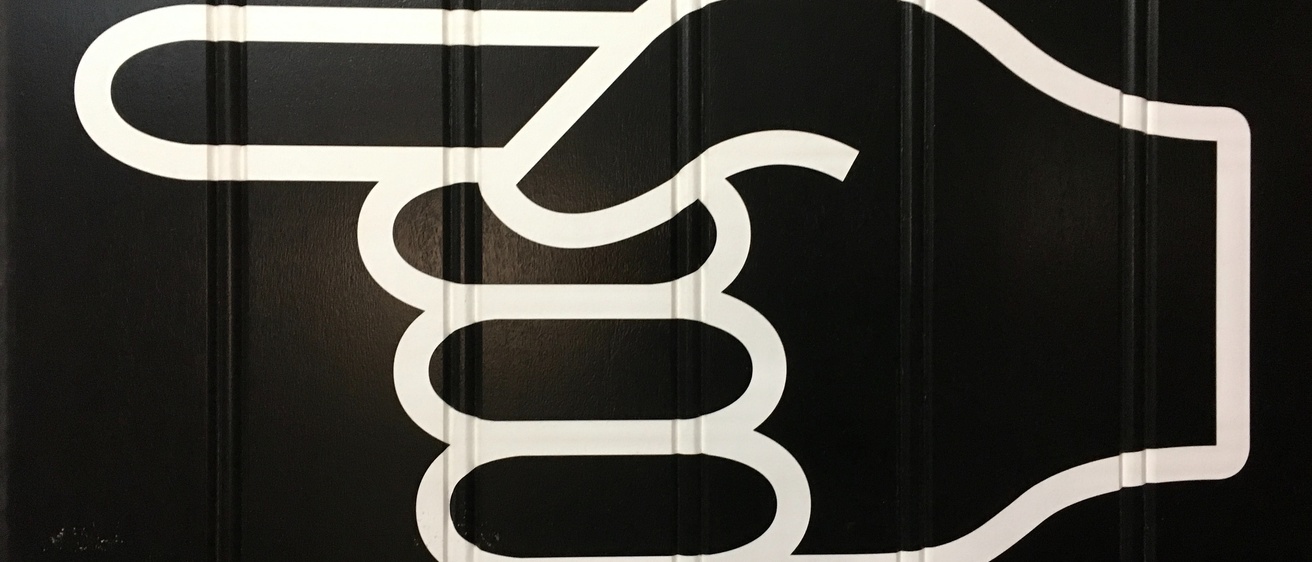I remember as a kid hearing, “When you point a finger, you have three pointing back at you.” After a good eye rolling, I remember contemplating what that meant. Recently my work has led me back to this aphorism.
Working in the Employee Assistance Program (EAP) I encounter many individuals navigating conflict in the workplace. Conflict is always an issue when people come together, but increasingly it is described as a lack of civility. You may have heard about the reported increase in incivility in recent years. It has been documented in customer service with individuals feeling emboldened to disrespect those providing services to them. In my experience, this has also extended to those with whom we work.
How we respond to conflict is an individual matter. For many, the default is to point that finger and identify what is wrong with someone else’s behavior. If someone is harming you or others it is important that this be reported. But only using an outward focus may leave one with few options, as others’ actions are out of our control.
Taking a deeper look in the direction of the three fingers pointing back at us is a growth mindset and begs the question, “Is it me?” I am offering the potentially unpopular opinion that the answer to that is “Yes! Of course it’s you.” Your mere presence means you contribute to the dynamic and your perception of the situation defines the interaction and your behavior. Reflection is important, as often our actions are the only aspect over which we have control.
Here are some self-examination tips to improve workplace civility:
Explore and build emotional intelligence.
Emotional intelligence is the capacity to recognize and effectively manage emotions in ourselves and others. Daniel Goleman identifies five elements of emotional intelligence (self-awareness, self-regulation, motivation, empathy, and social skills) and these can provide a road map for exploring our role in workplace dynamics and improving interactions.
A few ideas for growing emotional intelligence:
• Get in touch with your feelings by simply labeling them.
• Learn cues that you are becoming emotionally unregulated (that your emotions feel out of your ability to cope with) and what helps you to calm.
• Labeling feelings can help to diffuse intense emotions and activities such as breathing exercises and progressive muscle relaxation.
Assume positive intent.
As humans we tend to operate from a negative mindset. Try the opposite: Assume others you are working with have positive intent. This has been shown to lead to positive feelings internally and to contribute to a positive external environment around you.
Explore different viewpoints.
Especially when you are feeling upset with someone else, view the situation from the perspective of the person you feel is causing harm. This can lead to increased empathy and greater clarity about yourself, the other person, and what is fueling the problems. Loving Kindness Meditations can help build self-compassion and work to increase empathy for others.
Set boundaries.
Identify what type of engagement with your job and co-workers works best for you. It is lovely to have friends who are co-workers, but it also OK to just have working relationships. Setting healthy boundaries with work may improve your mood and may extend to your interactions with others at work.
Experiment.
Try what you are doing now or try something new and see how the actions change the dynamics. Track this and look back at your results. If it doesn’t seem to be working, try something new and check the results.
Cultural factors and identities affect interactions. There are stereotypes and assumptions about those who hold certain identities to confront as well as true differences in what is acceptable and comfortable based on one’s background, identities, and experiences.
Integrating knowledge that others may have different perceptions and comfort levels based on these factors is important when reflecting on your role in dynamics and in processing feedback you may receive. This is part of building self-awareness and perspective-taking. Think about what you feel comfortable with, listen to what others feel comfortable with, and find solutions that work for all while still honoring boundaries.
The university offers resources available to assist those dealing with conflict. The Employee Assistance Program offers short-term counseling and consultation. The ombudsperson is available to consult and facilitate difficult discussions with co-workers. Learning and Development offers courses that may help to build interpersonal skills.
Whether or not the pointer finger is directed at the problem, introspection from the three other fingers pointed at you may be the most effective way to improve your interactions with others and promote work civility.
Cover image by Giulia May.
